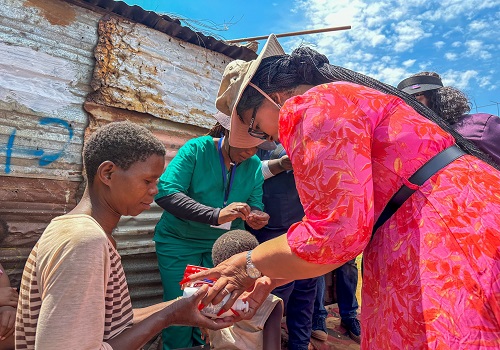
Koketso Maraba
According to the World Health Organisation, around 1 000 children under the age of five die every day from unsafe water, poor sanitation and hygiene.
To raise awareness about the importance of sanitation and hygiene, the Gauteng MEC for Health and Wellness, Nomantu Nkomo-Ralehoko led a World Toilet Day at Zenzele informal settlement on Tuesday, 19 November.
Throughout the day, environmental health practitioners (EHPs) educated the community on the importance of proper handwashing by demonstrating correct techniques and emphasising key moments for hand hygiene, such as before eating, after using the toilet, and after handling food. This is to foster a lasting behavioural change, reduce the spread of diseases, and improve overall public health.
Katlego Serepelele, a resident of Zenzele Informal Settlement said she is amazed at the techniques she learned, she confidently said she would be washing her hands properly with a bar of soap, scrubbing in between her fingers while ensuring that her wrists are cleaned moving forward.
“Today I learned the importance of washing my hands before preparing my meals because as a carpenter I am constantly using my hands for woodwork and my hands and nails get dirty. So, to avoid contaminating my food with germs and bacteria I need to wash my hands before I touch my food,” said Boitumelo Moloi also from Zenzele.
Poor sanitation conditions can lead to communicable diseases and other health risks such as skin infections, respiratory infections, colds, flu, pneumonia, sinus infections, dental problems, gastrointestinal issues, food poisoning, diarrhoea and stomach infections, Urinary Tract Infections (UTIs), parasitic infections, increased risk of infections, mental health issues, and increased risk of chronic diseases.
MEC Nkomo-Ralehoko urged the public to adopt good hygiene practices by maintaining clean living spaces and recommended that the community use regular cleaning products to keep their toilets hygienic.
By commemorating this day, the Department is highlighting the worldwide sanitation crisis, though urging communities, governments, and organisations to take proactive steps towards achieving Sustainable Development Goal (SDG) 6, which aims to ensure that everyone has clean water and sanitation by 2030.
SOURCED FROM THE GPG.

